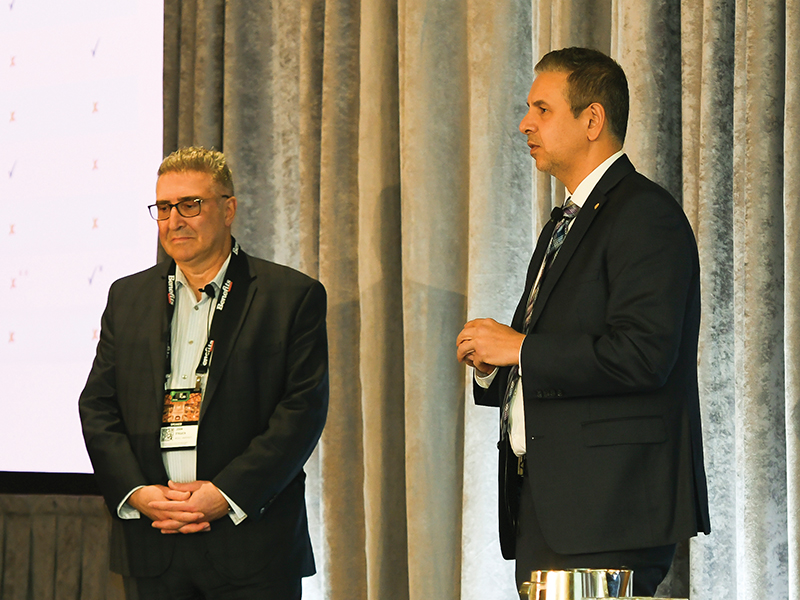

While McGill University has factored decumulation into its pension plan for decades, the plan sponsor is continually fine tuning these strategies for members, said John D’Agata, the university’s director of pension and benefits, during a session at Benefits Canada‘s 2023 DC Plan Summit.
McGill’s pension plan has more than $1.5 billion in assets and more than 9,500 members. While members who joined after Jan. 1, 2009 are in a straight defined contribution plan, those who joined before that date are in a hybrid plan with a defined benefit element.
The plan introduced annuity options in the mid-1970s, said D’Agata. “It would allow for a person to convert their defined contribution holdings into an annuity payment and, depending on the rate of return on the portfolio, there could be a bump up. Unfortunately, there was no bump down option, so it was a one-way direction type of option which was discontinued in 2010.”
McGill then introduced a group life income fund so plan members weren’t forced into retail investment products and could access an investment lineup that was close to what they had during the accumulation phase. In 2015, the Quebec government introduced the variable benefit option and in 2020, the university added this option to its plan.
As early as the 1990s, McGill’s pension committee was lobbying the provincial government to introduce a variable benefit arrangement, said D’Agata. “Even though, at the time, the university was offering these annuity options, they really wanted to introduce a variable benefit type payment that didn’t force a person out of the pension plan. So we’re finally able to get that done. And it does allow for an easier transition from accumulation to decumulation.”
The variable benefit option has increased members’ appreciation of the plan. “Just knowing the fact that you can continue with the pension plan throughout your career is a huge advantage for members; in the university sector, there’s more of a desire to stay in contact and keep that community.”
Read: High inflation supercharging decumulation challenges
While more members have opted for the group LIF or registered retirement income fund over the variable benefit option, D’Agata noted the latter arrangement is still relatively new. “Our take-up rate is about just under 40 per cent right now, but we’re anticipating that, as more information gets out [and] as we’re able to connect with our audiences better, . . . that number should go up.”
He added the variable benefit option also provides plan members with a benchmark, regardless of which decumulation option they choose. Also speaking during the session, Yashar Zarrabian, regional vice-president for Quebec at Sun Life Financial, acknowledged it can be difficult for DC plan sponsors to offer members a one-size-fits-all approach to decumulation.
“When [members are] in the accumulation phase, a one-size-fits-all solution isn’t perfect, but it does the job, . . . [but] their decumulation solution is completely different based on their personal circumstances. For example, how are their expenses? How is their health? Are their kids out of the house [or] are they still at home? All of those elements will have an impact on how [plan members] withdraw their money.”
And while McGill has a wide array of programs and resources it can leverage, D’Agata said there are challenges in communicating the variable benefit option to members. “It’s not something that individuals grasp easily, but we’re at the beginning of this journey to try and get more information awareness. . . . [We] have professors that are teaching financial matters [and] we do invite them to give presentations to the employee base.”
Read more coverage of the 2023 DC Plan Summit.
